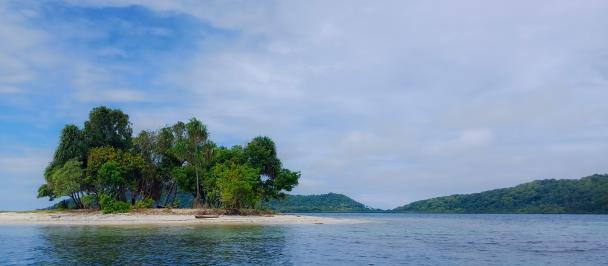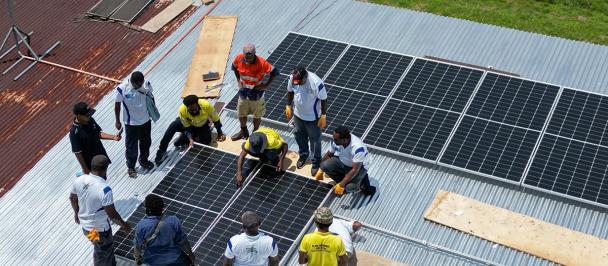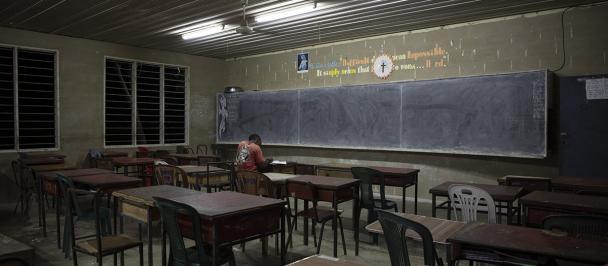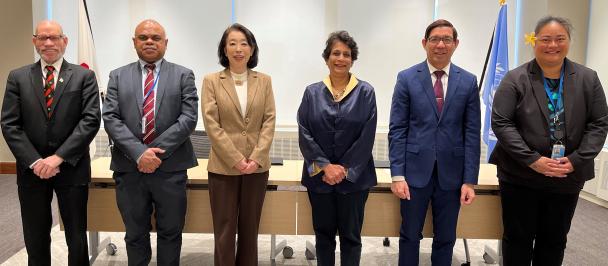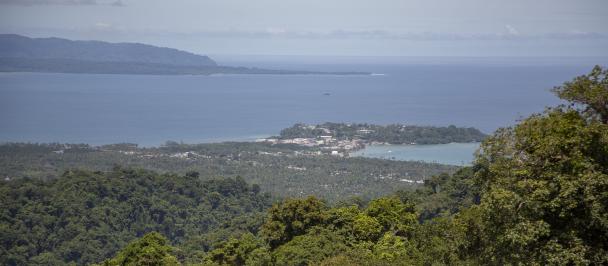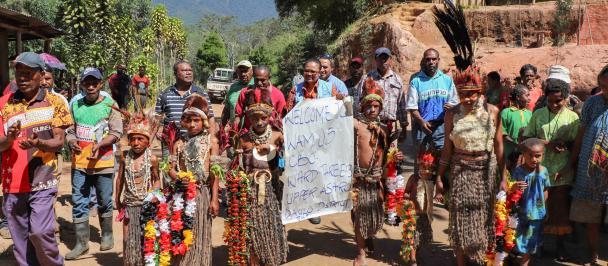Solar panels installed at Taul Health Post. The STREIT project will install a complimentary system in 2022. Photo: Courtesy of University of Technology Sustainable Energy Research Institution.
UNDP will lead installations of solar panels to generate renewable power in schools and health facilities in remote parts of East Sepik and Sandaun Provinces.
Only approximately 15% of Papua New Guinea's more than 10 million people have access to reliable electricity.
Remote and rural areas able to access electricity are often powered by high-cost diesel generators which affects the reliability of the power being supplied. This also contributes significantly to poor air quality and Greenhouse Gas Emissions.
The United Nations Development Programme, under the European Union-funded ‘Support to Rural Entrepreneurship, Investment and Trade (STREIT)' Program, is overseeing the installation of solar panels to generate renewable energy in select remote schools and heath facilities in East Sepik and Sandaun Provinces. This is part of broader efforts to increase the use of solar energy under the Programme to enhance agricultural value chains and improve production particularly for women-led micro and small enterprises.
The aim now is to create awareness and promote renewable energy as one way to enhance value chains as well as support climate adaptation efforts.
"Clean energy is one solution to mitigate the impacts of climate change and will also create employment opportunities for local agripreneurs to thrive economically," says Karen Anawe, UNDP’s Project Manager for the Renewable Energy component of the STREIT Program.
 "Clean energy will create employment opportunities for local agripreneurs to thrive economically" - UNDP's Karen Anawe (left) with community health workers at Taul Health Post. Photo: STREIT "Clean energy will create employment opportunities for local agripreneurs to thrive economically" - UNDP's Karen Anawe (left) with community health workers at Taul Health Post. Photo: STREIT |
A beneficiary the project, staff at Taul Community Health Post in Wewak District of East Sepik Province expressed appreciation of the United Nations Development Programme's inclusive design that will benefit local communities.
“We like the approach UNDP is taking by installing solar, and also training locals in maintenance and operations, to ensure we have a clean and reliable power source to serve more than 2000 farmers who access the services of Taul Community Health Post," said Mr Alois Henry.
The STREIT programme is jointly delivered by five UN agencies in partnership with the national and respective provincial Governments. It is proudly funded by the European Union.

 Locations
Locations